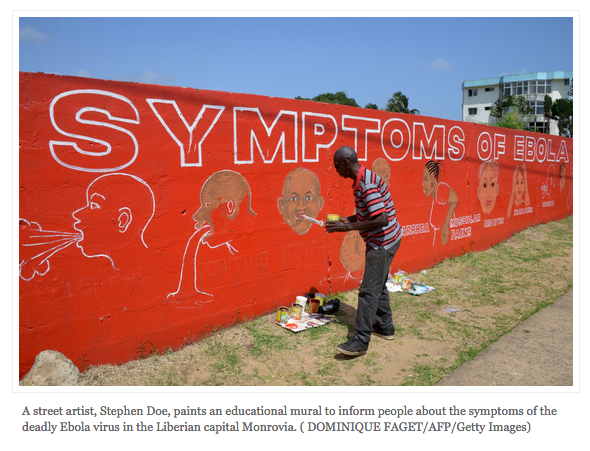Sarah Ford | September 16, 2014
African healthcare laid bare by Ebola epidemic
By Savio Carvalho
Two years ago, I had the privilege of visiting Freetown and other parts of Sierra Leone where Amnesty International was training maternal health volunteers to monitor antenatal care. It was evident then that Sierra Leone’s health infrastructure was in a very poor state, undermined by years of war and lack of investment. But today, the outbreak of Ebola has meant that its struggling healthcare system, and others in neighboring African countries – particularly Liberia and Guinea – have been completely overwhelmed.
The Ebola outbreak is the first in West Africa since the disease was diagnosed in the 1970s and it is the largest ever in terms of people affected. According to the World Health Organization (WHO), the death toll has already surpassed 2,200 and more than 20,000 could be infected before the outbreak is brought under control. While the absolute priority for African governments must clearly be to protect lives, there are growing concerns that attempts to contain the outbreak are having a negative impact on human rights.
Speaking at a crisis African Union meeting this week, AU Commission chair, Nkosazana Dlamini-Zuma, cautioned against measures that may have more social and economic impact than the disease itself.
Stigmatization of victims
“Fighting Ebola must be done in a manner that doesn’t fuel isolation or lead to the stigmatization of victims, communities and countries,” she said. Indeed, it is not just economic and social rights which could potentially be affected by the measures taken to tackle Ebola, but also rights including guarantees against arbitrary detention and freedom of movement.
There have been reported cases of rejection by families and communities of people who have recovered from the disease and been discharged from hospital.

Get Resources and Insights Straight To Your Inbox
Explore More Articles
How to Align Your Company’s Values with Your Hiring Process
Hiring is about more than filling roles—it’s about shaping the future of your company. Every new team member contributes to the culture you’re building, and…
Read ArticleInternational Self Care Day
Today, July 24, 2025, we celebrate International Self Care Day, a day dedicated to promoting self-care practices and their numerous benefits for physical, mental, and…
Read ArticleGet Resources and Insights Straight To Your Inbox
Receive our monthly/bi-monthly newsletter filled with information about causes, nonprofit impact, and topics important for corporate social responsibility and employee engagement professionals, including disaster response, workplace giving, matching gifts, employee assistance funds, volunteering, scholarship award program management, grantmaking, and other philanthropic initiatives.




